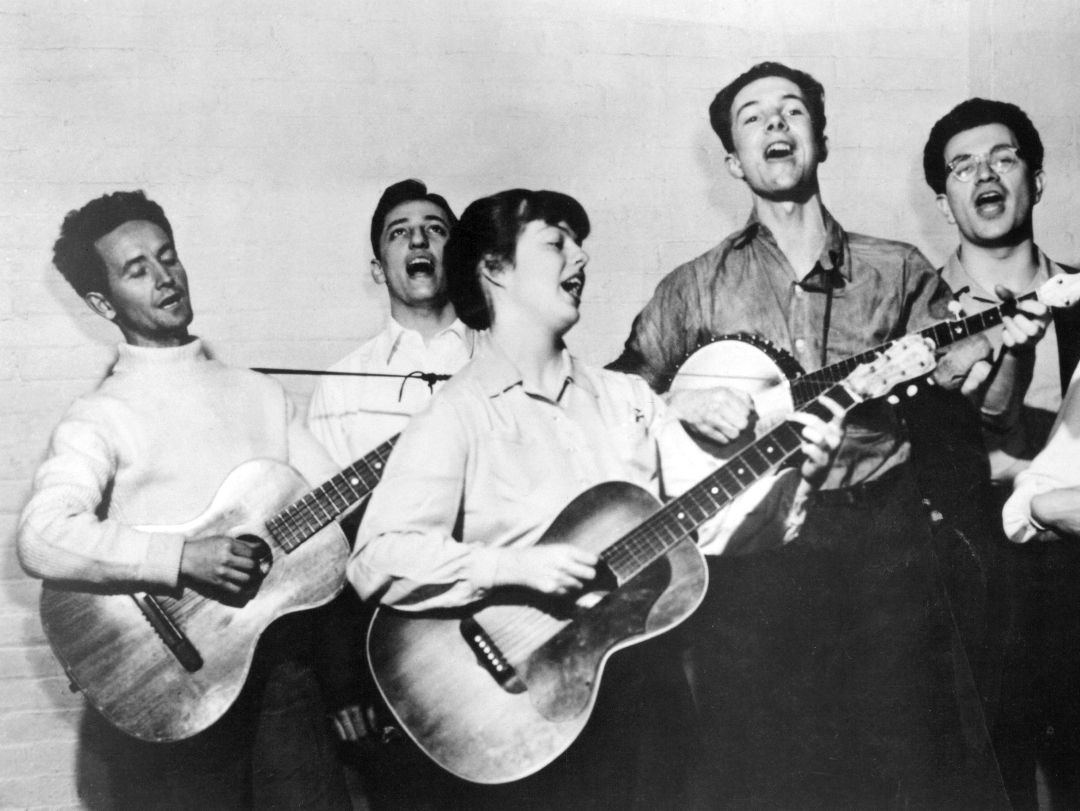In 1960, a young Robert Zimmerman — who had begun to call himself “Bob Dylan” — journeyed from the icy flatlands of Minnesota to New Jersey on a pilgrimage. His destination: the bedside of his ailing idol, the legendary folk hero, Woody Guthrie. He was obsessed with Woody, or rather, with the mythic figure Guthrie created in his memoir, Bound for Glory. The book painted Guthrie as a train-hopping folk troubadour singing for hobo camps, union halls, and saloons, armed with nothing but a guitar and harmonica. Biographer Clinton Heylin described Dylan at this time as being fully immersed in his “Guthrie phase.”
A Complete Unknown, inspired by Dylan Goes Electric by Elijah Wald, has brought Dylan back into the limelight. However, its depiction of his story glosses over a key historical fact: both Pete Seeger and Woody Guthrie — central figures in Dylan’s career and the film’s narrative — were communists. Given the limits of what a film can capture, it’s worth revisiting the time before A Complete Unknown to see what shaped Dylan’s early influences.
“I’m not sure if these guys are going to try and break up this meeting or not,” Robert Wood confessed to Pete Seeger and Woody Guthrie, his eyes fixed on the row of men lined up at the back of the union hall. It was 1940, and the Mid-Continent Refinery strike had dragged on for over a year, its violence flaring in bombings, shootings, and even acid attacks. The hall that day held sixty weary workers and their families, huddled under the harsh gaze of the men in the back — whose…
Auteur: Taylor Dorrell

